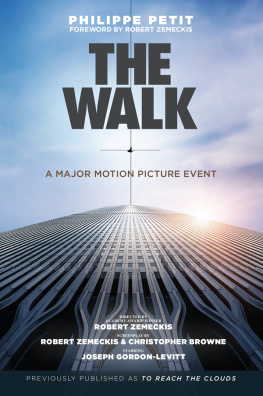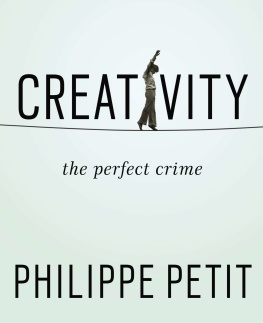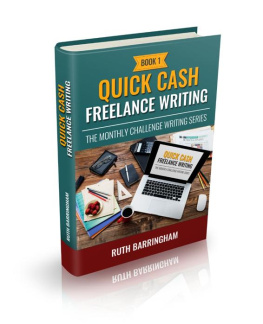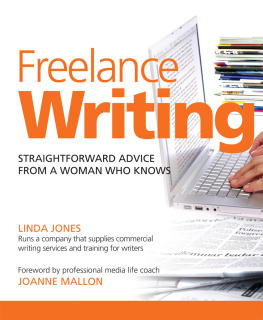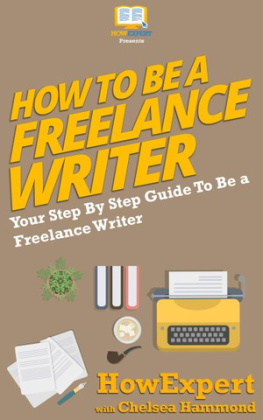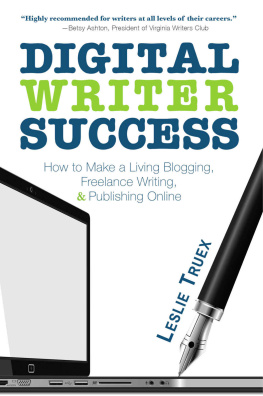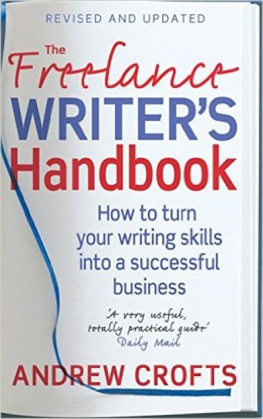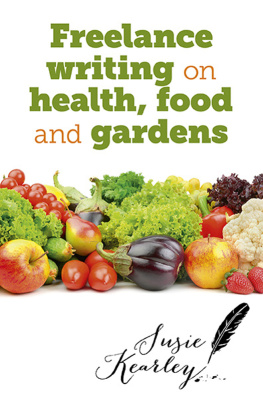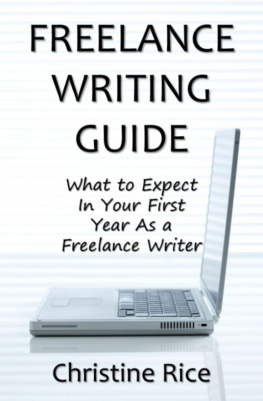Contents
Guide
The Essential Guide to Freelance Writing
How to Write, Work, and Thrive on Your Own Terms
Zachary Petit

WritersDigest.com
Cincinnati, Ohio
THE ESSENTIAL GUIDE TO FREELANCE WRITING. Copyright 2015 by Zachary Petit. Manufactured in the United States of America. All rights reserved. No part of this book may be reproduced in any form or by any electronic or mechanical means including information storage and retrieval systems without permission in writing from the publisher, except by a reviewer, who may quote brief passages in a review. Published by Writers Digest Books, an imprint of F+W Media, Inc., 10151 Carver Road, Suite # 200, Blue Ash, OH 45242. (800) 289-0963. First edition.
For more resources for writers, visit www.writersdigest.com .
Distributed in Canada by Fraser Direct
100 Armstrong Avenue
Georgetown, Ontario, Canada L7G 5S4
Tel: (905) 877-4411
Distributed in the U.K. and Europe by F&W Media International
Brunel House, Newton Abbot, Devon, TQ12 4PU, England
Tel: (+44) 1626-323200, Fax: (+44) 1626-323319
E-mail:
Distributed in Australia by Capricorn Link
P.O. Box 704, Windsor, NSW 2756 Australia
Tel: (02) 4577-3555

WritersDigest.com
Cincinnati, Ohio
To my mentor, Marc Allan, the only cheerleader I had for a very long time
To the ethical Charles St. Cyr
And to Mike Redmond, who said, Brand of the beer, name of the dog, and suddenly, it all clicked
By Way of Introduction
Journalism is literature in a hurry.
Matthew Arnold
I had a problem. A grave problem. An existential disaster requiring careful analysis and meditation. But I was in high school at the time, so I just muttered a few obscenities into the coffee I was drinking to look cool and went back to my Bukowski book.
I didnt know it back then, but I was confronting a common curse bestowed upon many an aspiring scribe: I knew I wanted to write. I knew I had to write. But I had no way to prove that I could actually do it.
All I had at the time was badly written music reviews for the high school newspaper I edited and a spectacularly large cache of poetry that is now hidden under my childhood bed at my parents house, where it (thankfully, truly thankfully) cant find its way to the Internet.
I wanted to be a novelist, and I figured a sound career path would be to apply to college for journalism and write for newspapers like all my heroes did (Hemingway, Hunter S. Thompson, Twain, and, seemingly, everyone else). Thus Id be able to make a living by writing nonfiction in some newsroom or another, while writing fiction on the side. After that, Id become a best-selling novelist, and so on and so forth.
The more I dug in and learned, though, the more the nonfiction world at large seemed to be teeming with barriers and catch-22s. How could you break into writing for publications if you had no writing to show for yourself, only a feeling, a knowing?
It all seemed absurd, nigh impossible. So into my for-show coffee I wept.
But like all writers, I had no choice. I knew this thing was inside me and that the only logical way to avoid living my life with a used car salesmans sense of fulfillment was to follow it. I believe that we have no choice but to do what we do. So we keep trying at it until we break the glass barrier, or at least begin to scratch its surface.
In my case, I got accepted into journalism school. I wrote for the school newspaper and tried my hand at some feature stories; wrote some movie reviews, op-eds, and event recaps; and even continued writing my (praise God, not online) poetry for a bit. One Journalism 101 teacher flat out told me to quit because she didnt think I had the chops. I didnt take her advice: It was becoming clear to me that I got a thrill out of writing nonfiction, even if I wasnt any good at it yet. It made me feel electric. It made me feel alive. The real world is imbued with amazing and terrifying and hilarious and strange stories, and people will pay you to write about them. What writer wouldnt want to do that? Moreover, magazines offered a venue that equally favored creativity and storytelling alongside the principles of reportage found in newspapers. I was sold. I wanted to write nonfiction that read like fiction.
So I applied for fellowships and programs at a handful of prestigious schools and societies. I didnt get them. The writing world, again, seemed like an exclusive clubone that, at times, didnt even seem worth all the trouble. (Get ready for an introductory salary equivalent to what you made working as a cashier at Toys R Us last summer!) Dont tell anyone, but I made as much in my first reporter job as I did selling Barbies under the looming specter of a giant smiling giraffe.
But, eventually, I caught a break (as we all do, if we keep at it long enough): National Geographic magazine hired me as an intern. They even gave me a shot at a small article for the print edition, which made my life when it came out. (I sometimes wonder if I should have called it a day when I was nineteen.) While there, I asked a staff writer how to become a staff writer at a magazine like National Geographic. His advice: Work for newspapers for ten years. It was like a journalistic boot camp, he said. It makes you fast. It teaches you to produce. It trains you to interview and read sources. And it begins to instill in you all the basic narrative elements inherent to magazine writing.
I figured, what the hell? I wanted to write for magazines, but if this guy said thats what I had to do, then thats what I had to do. So after I graduated I began applying for newspaper jobs.
Again, I got rejected. Or, more accurately, and perhaps marginally worse: I received no response. I queried paper after paper. From the swampy stretches of Beaumont, Texas, to the glacier-flanked town of Juneau, Alaska, my rsum rode the rails of a country on an economic downturn alongside innumerable fellow bindle stick-toting candidates. The newspaper industry was teetering its way to its own obituary pages. I imagined scores of journalism grads like myself sitting at their parents Compaqs, Sallie Mae looming over their shoulders, all in a cutthroat battle for the same hilariously tiny pool of bad-paying jobs.
After giving up on competitive metropolitan markets, I began targeting a paper in Northern Ohio. I e-mailed the editor to follow up on my rsum. No response. I called the editor. I harassed the editor. I begged the editor. Finally, either recognizing my bulldog, reporter-worthy tenacity, or simply succumbing to it, he conceded and offered me an interview. I drove three-and-a-half hours past endless cornfields and attempted to convince him of my passion, despite my lack of stellar clips. I got the gig. I moved into the second floor of a dilapidated mansion that was decades past its prime.
What followed was one of the greatest years of my life. The editors didnt seem to care too much what I wrote, so long as it filled pages and didnt result in a lawsuit, so I wrote everything Id always wanted tonarrative features, news, Q&As, investigative pieces. I went on drug raids. I roamed prisons and abandoned schools that were allegedly haunted. It was everything Id hoped and imagined journalism would be: life as adventure, simply waiting for someone to document it.


